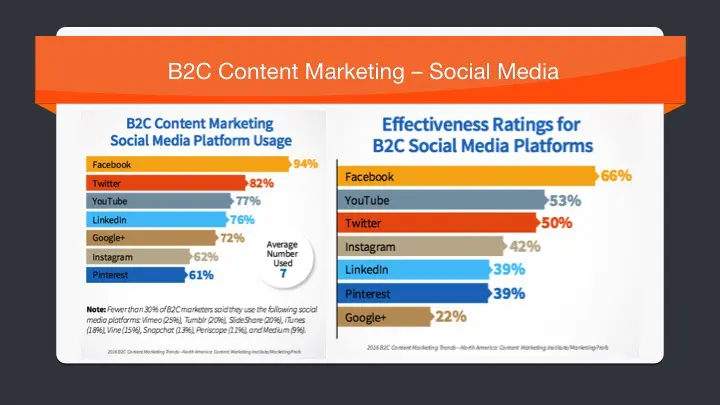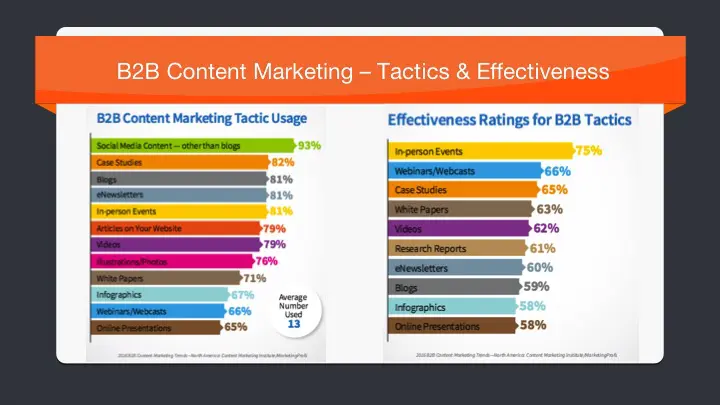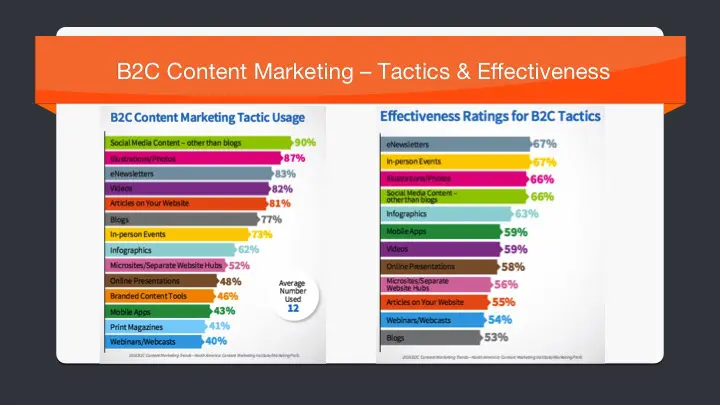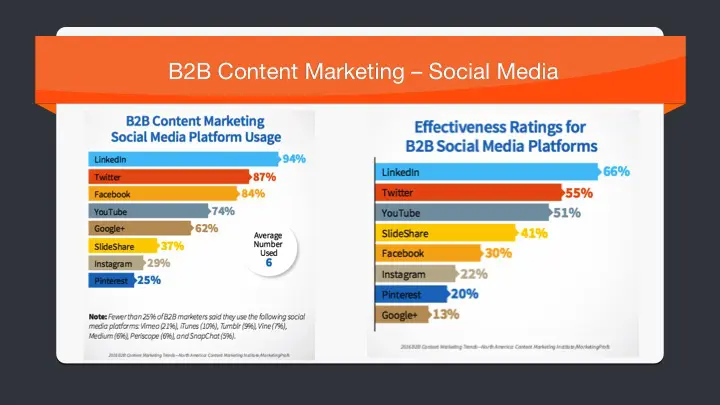What is and How Will Businesses be Using Content Marketing in 2016?
According to the Content Marketing Institute content marketing is a strategic marketing approach focused on creating and distributing valuable, relevant, and consistent content to attract and retain a clearly-defined audience — and, ultimately, to drive profitable customer action.
Another way of thinking of content marketing is the “art of communicating without selling.” You want to provide information that makes consumer more intelligent. And you do this with the intent of changing or enhancing consumer behavior.
Based on a study from the Content Marketing Institute, B2B and B2C companies’ content marketing goals for 2016 are to generate more leads and increase sales, and increase sales and improve customer retention/loyalty, respectively. Both types of companies challenges and priorities are producing engaging content and measuring its effectiveness (and therefore, understanding what is and is not effective).
To achieve these goals, B2B companies are primarily using social media (other than blogs), case studies, and blogs. However, they’re only rating case studies to be in the top three most effective tactics. In-person events and webinars/webcasts rank first and second, respectively.
B2C companies are primarily using social media content (other than blogs), illustrations/photos, and e Newsletters to reach these goals.
What is interesting is that B2B and B2C companies are using, on average, 13 and 12 tactics, respectively, to reach their content marketing goals. Comparing the list of tactics employed to how strong companies rank their effectiveness, one could wonder if using fewer tactics in order to allocated more marketing funds to more effective tactics would be a better use of marketing dollars.
If we look at social media tactics, specifically, you’ll see that (not surprisingly) LinkedIn, Twitter, and Facebook are the most commonly used platforms for B2B businesses with their effectiveness ranking in corresponding order aside for Facebook, which is outranked by YouTube and SlideShare.
Social media platform usage and effectiveness for B2C companies is also not surprising.

Trending Content Marketing Tactics
The Content Marketing Institute found in its study that the following content marketing tactics are trending in 2016:
- Content Amplification – having your content be found, read, and internalized
- Storytelling – create a story out of facts, findings, data, etc. by using rich and interactive content.
- Episodic Content – distributing content in chapters to build suspense in order to build momentum (upon which you can capitalize). You can also develop plotlines and characters.
- Influencers – partnering with individuals who or companies that have significant influence in a given industry.
- Marketing + IT – as technology’s role in content marketing continues to grow, marketers will see a greater convergence of their enterprise’s marketing and IT departments (which tend to have the weakest relationship compared to other departments).
- Video
- Interactive Content – Quizzes/self-assessments, polls/surveys, calculators, infographics, whitepapers, galleries, brackets, etc.
Summary
- The biggest challenges are producing engaging content and measuring its effectiveness.
- The top B2B tactics are: social media (LinkedIn, Twitter, Facebook), case studies, blogs, and newsletters.
- The top B2C tactics are: social media (Facebook, Twitter, YouTube), illustrations/photos, newsletters, and videos.
- The overall goal of any content marketing strategy is to provide information that has value (i.e. entertaining, thought-provoking, shares knowledge) and engages visitors (i.e. interactive) so that you change their behavior (i.e. increases their brand loyalty to you).




